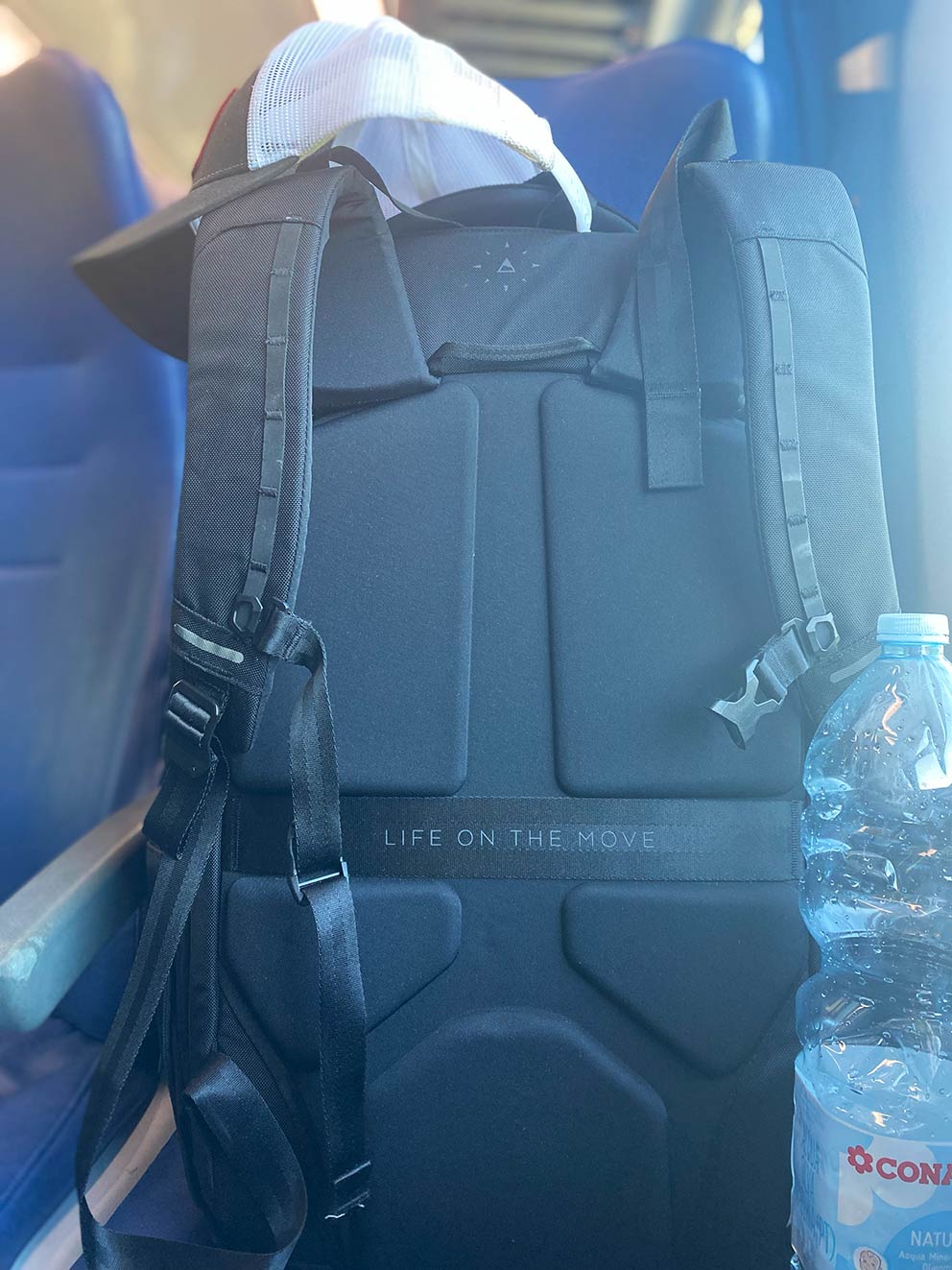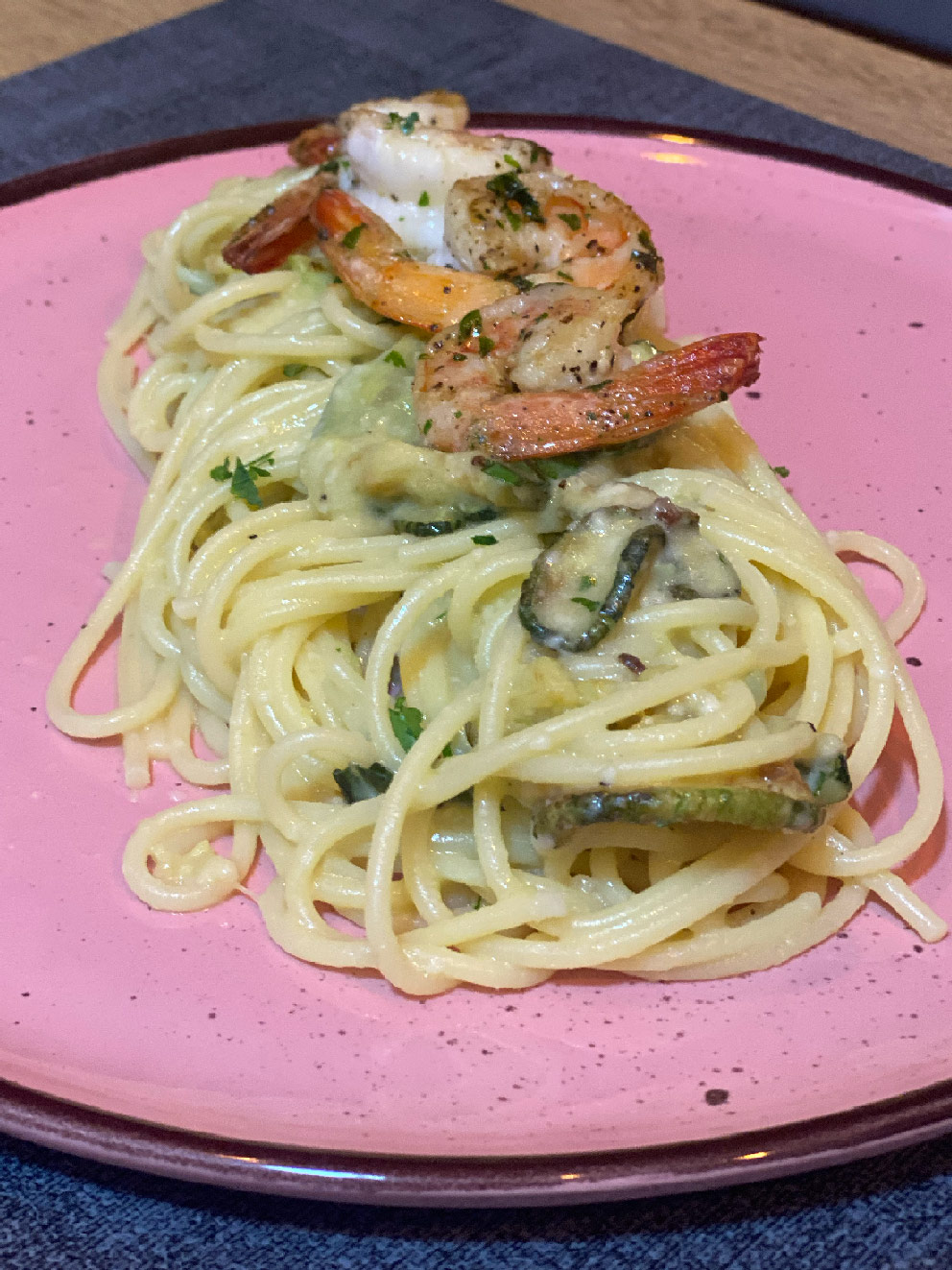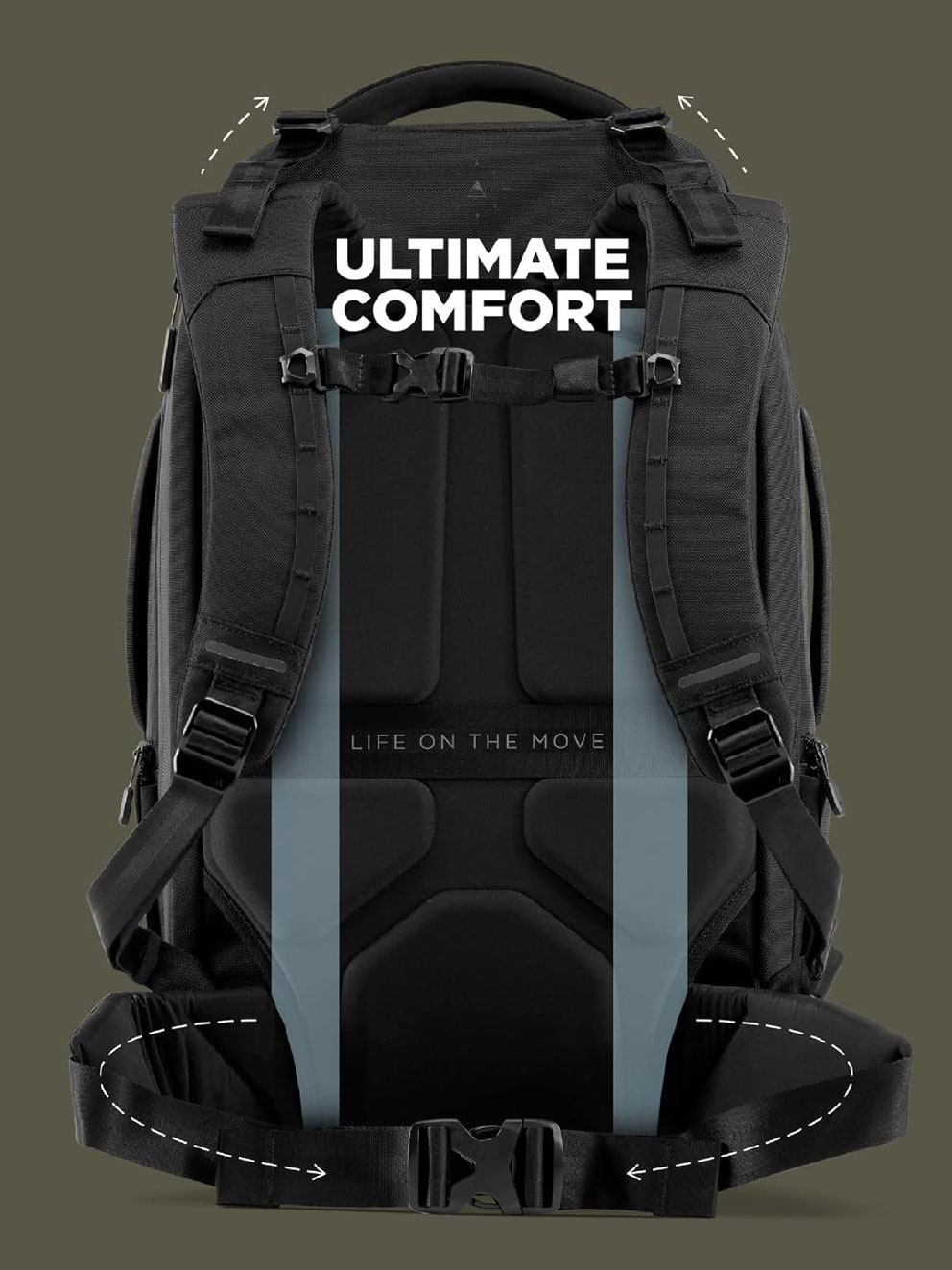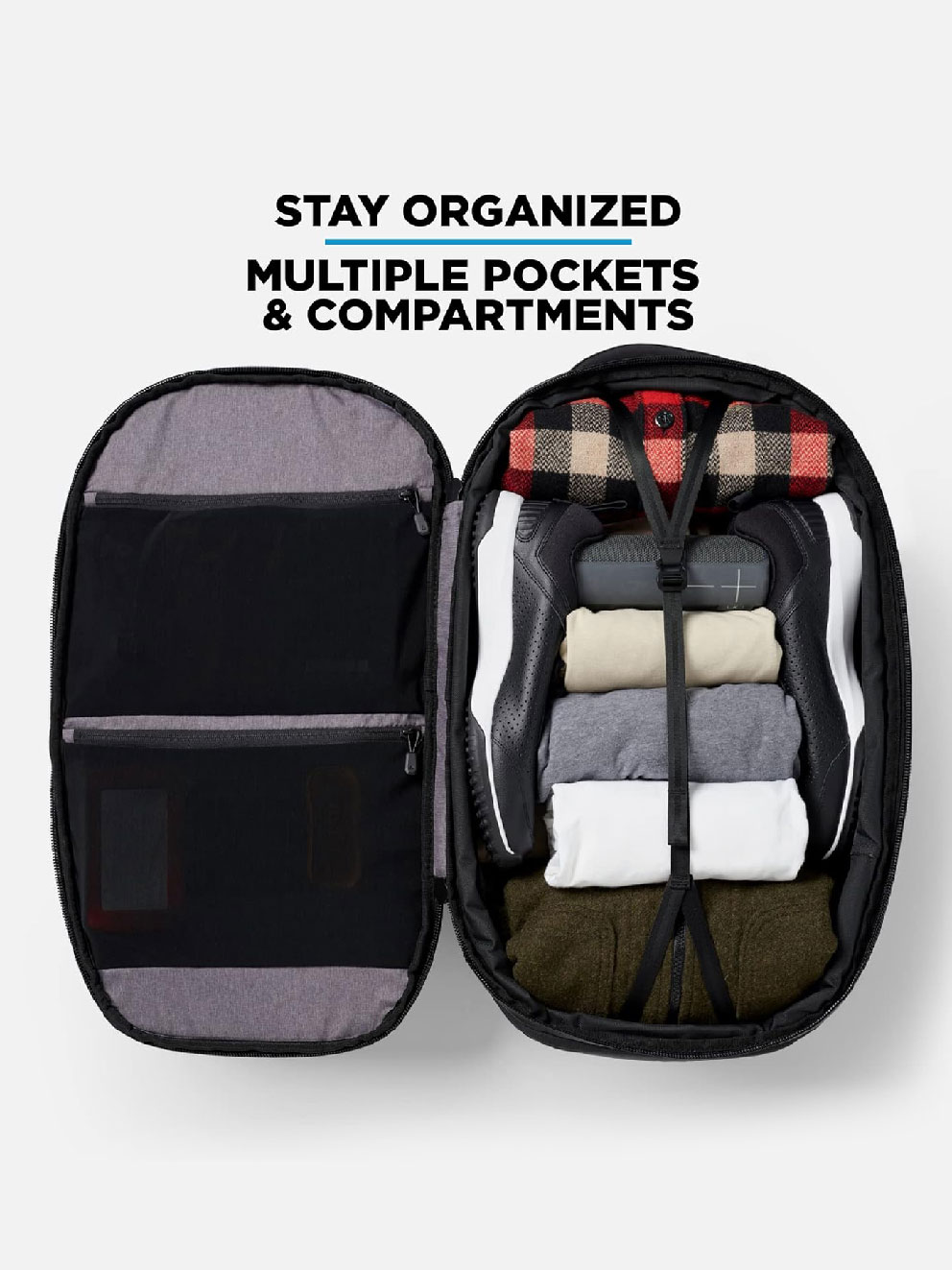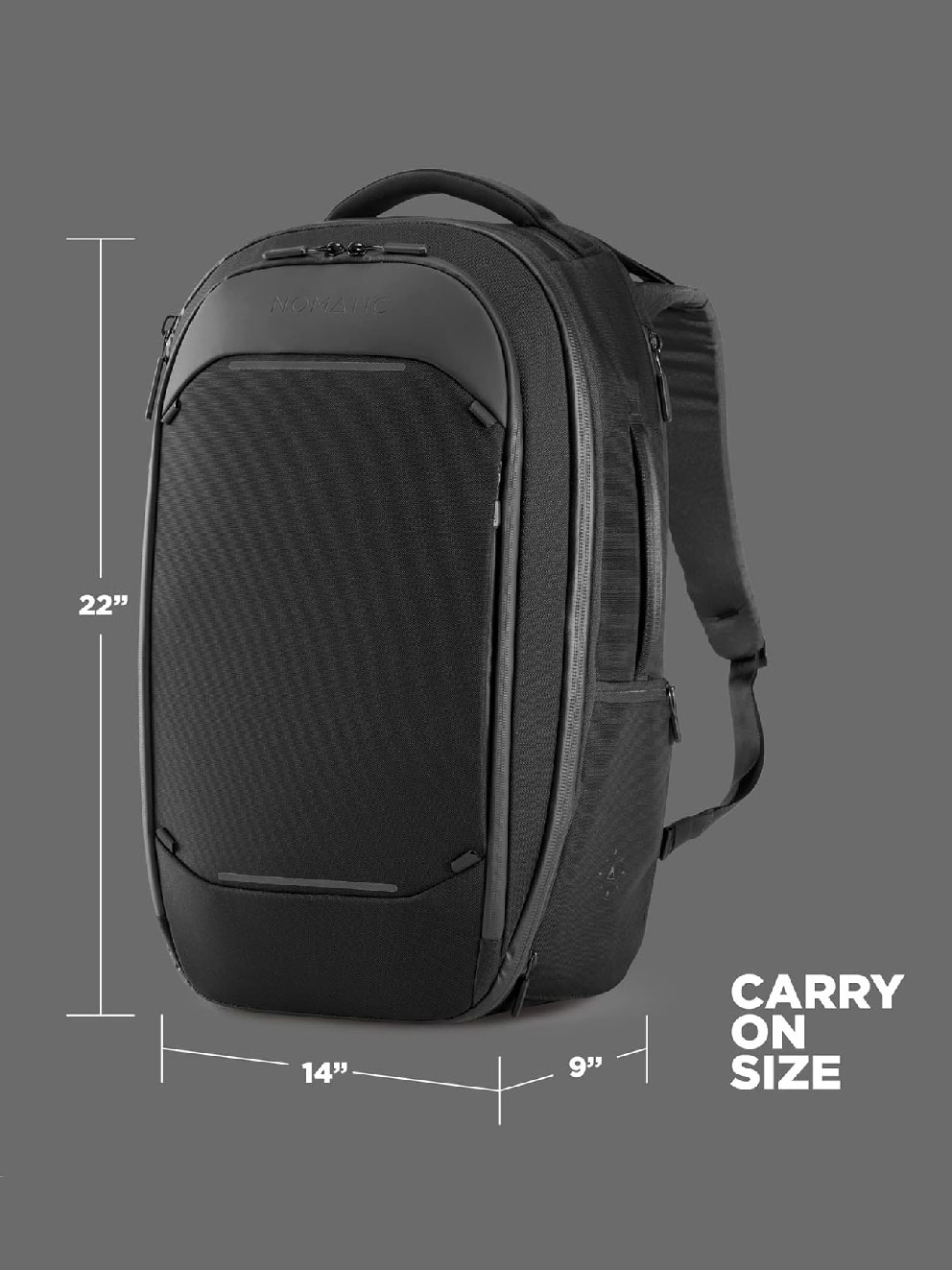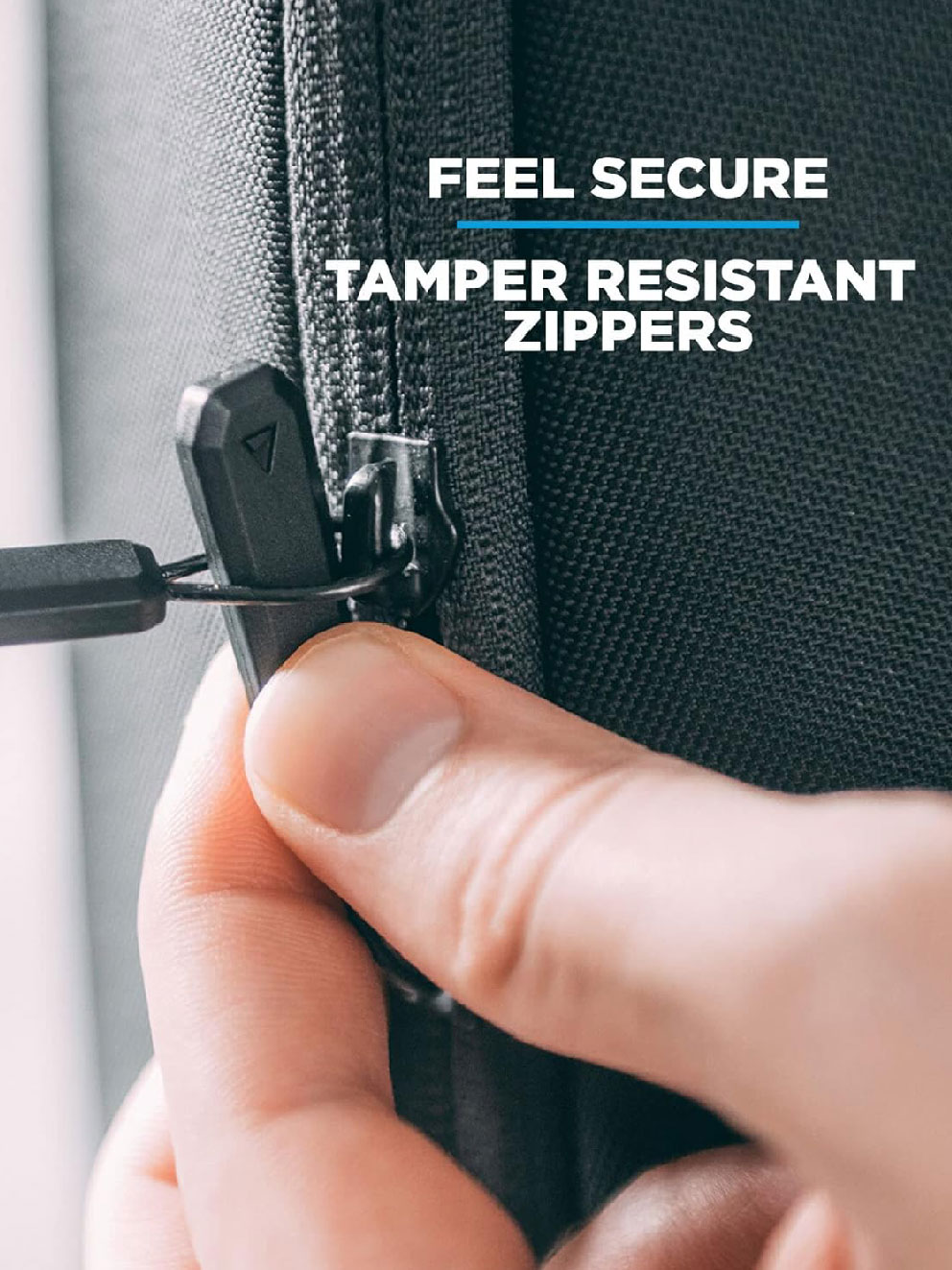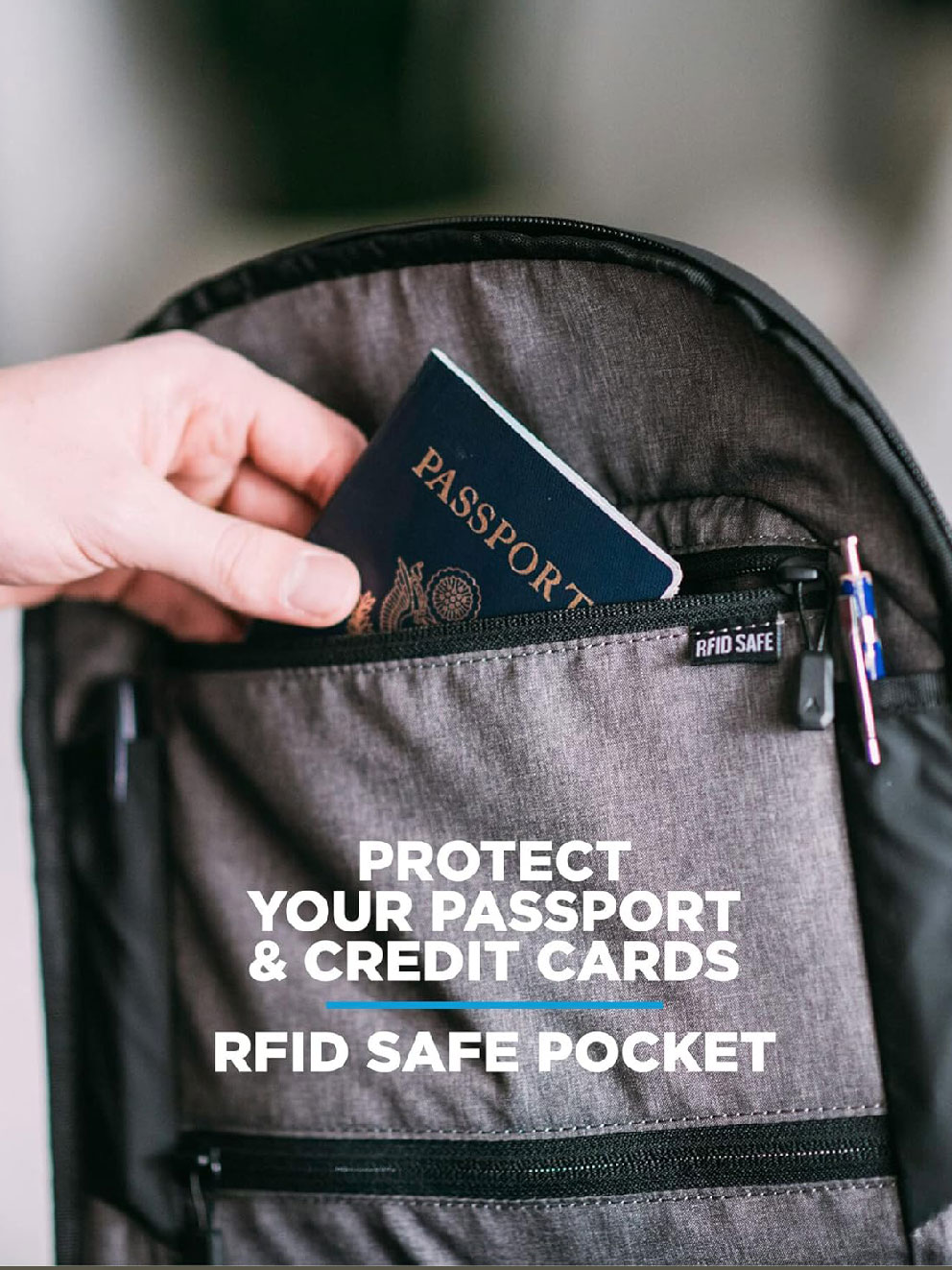Living life on the road as a traveling nomad is an adventure filled with new experiences and diverse landscapes. However, maintaining a healthy diet can be a challenge when you're constantly on the move. Let's explore ways to cook nutritious meals, spend money wisely, and make the most of local resources, ensuring that your expedition and culinary journey is both satisfying for your taste buds and easy on your wallet.
Plan Ahead and Budget
One of the keys to successful nomadic cooking is planning. Before embarking on your journey, create a rough budget for your food expenses. Going out to eat for three meals a day will surely break the bank, so try and eat at home (your lodging) when you can. By having somewhat of a plan, you can make informed decisions about where to spend and where to save.
By planning ahead and knowing where you're going and the currency conversion, decide what's more cost effective. For example, lunch in Brazil costs around $10 USD or below. So with that, eat breakfast and dinner at home and enjoy a good lunch out. Or, sometime's it's cost effective to buy two lunches at a lower price and save one of them for dinner. So now with a couple eggs and toast for breakfast ($3), your daily food expense is around $23, which isn't entirely bad.
Embrace Local Ingredients
Take advantage of the local markets and grocery stores you encounter on your travels. Not only does buying local support the community, but it also provides you with fresh, seasonal produce at lower prices. Local ingredients often have unique flavors that can add an exciting twist to your meals, making your culinary experiences as diverse as the landscapes you explore.
Using local ingredients brings you that much closer to the local culture. Try cooking local dishes or attend cooking classes that teach you the local dishes. The cooking class might cost a little more, but the value and experience you get from it is priceless. Not only do you get to learn a local dish, you cook it with a local as well as meet people from around the world who are doing the same thing. And you also bring that recipe with you for the rest of your life.
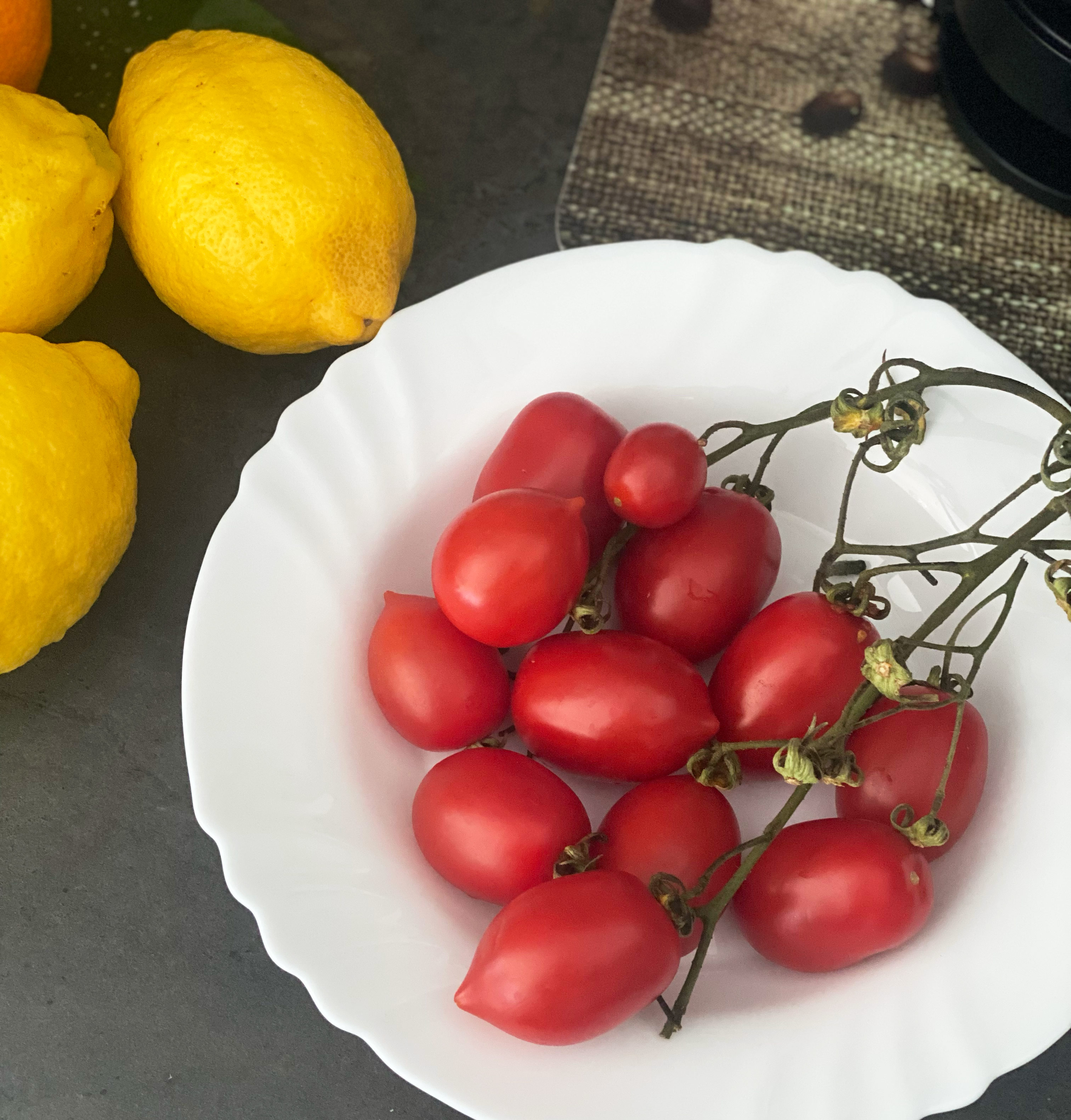
Invest in Multi-Use Cooking Tools
When space is limited, versatile cooking tools become your best friends. Opt for compact, multi-use utensils such as a tupperware, a thin, light-weight cutting board, along with other items that are easy to travel with and don't take up much valuable space in the backpack.
When booking an AirBnB or other lodging that has a kitchen or cooking equipment, check to see what they offer. Some places have the best of the best when it comes to cooking, others have the absolute worst, so be prepared and pack your own if you can. Having a couple random items like a durable wine opener, coconut opener (yes, it's essential in some places), a cutting board, cheese grater, coffee and coffee filters, will definitely come in handy and save a trip out and another needless expenditure.
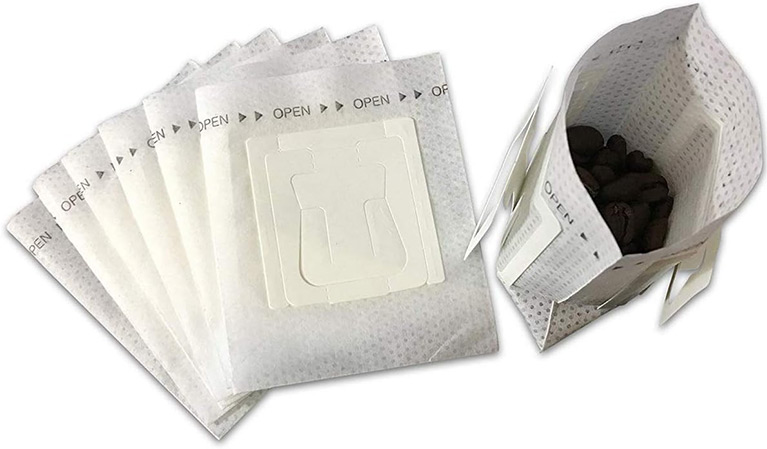
Boolavard 100Pcs Portable Hanging Ear Drip Coffee Bags
From $13
The hanging ear hook design makes it simple to use and convenient to make a good tasting coffee in less than 5 minutes.
Choose Shelf-Stable Pantry Staples
Stocking up on non-perishable items is crucial for a nomad's pantry. Items like whole grains, legumes, dried herbs, and spices can add flavor and nutrition to your meals without the need for refrigeration. Additionally, they are cost-effective and have a long shelf life, making them perfect for extended journeys.
While traveling, always have some pasta in your bag, a small bottle of good olive oil, garlic, salt & pepper, and some herbs depending on the country you're in and what you plan on cooking. You can't pack your entire spice cabinet so pack more or less the local cuisine spices. Get out of your ordinary- venture out to new cuisines and flavors.
Master One-Pot Recipes
Simplify your cooking process by mastering one-pot recipes. These dishes not only save you time and effort but also minimize the number of utensils you need. From hearty stews to stir-fries, one-pot meals allow you to create delicious and nutritious dishes with minimal cleanup.
Prioritize Nutrition without Sacrificing Flavor
Maintaining a healthy diet is essential for a nomadic lifestyle, but that doesn't mean sacrificing flavor. Experiment with spices, herbs, and condiments to add depth to your meals. Opt for lean protein sources, whole grains, and a variety of colorful vegetables to ensure you're getting a well-balanced and nourishing diet.
Minimize Food Waste
Nomads understand the value of resources, and this extends to food. Plan your meals to use ingredients efficiently, and consider creative ways to repurpose leftovers. Embrace batch cooking to prepare larger quantities that can be stored and reheated, saving you time and reducing food waste.
Another fantastic item to bring with you as a traveling nomad is tupperware! I can't tell you how many times I needed tupperware after cooking a good meal. Tupperware is easy to travel with as it keeps your spices and other ingredients safe and away from your clothes. A couple dollars of tupperware goes a long way.
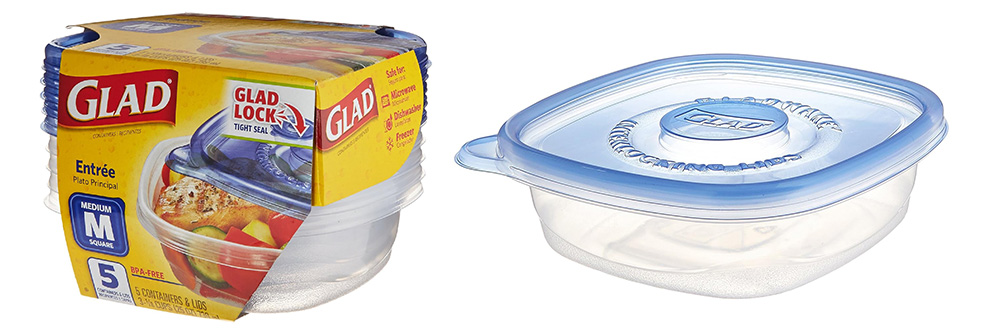
Glad Gladware Entree Plastic Square Containers with Lids, 25 Ounce, 5 Count
From $13
There's a lot of fancy tupperware options on the market, but the tupperware we recommmend for traveling as a nomad are the simple containers like these..
They are extremely lightweight, great size for any food, and perfect size to pack in the backpack. They take up no space at all, especially when empty and stacked. I personally fill mine with spices, salt and pepper, and other items like rice, beans, etc. And, if something should happened to these, you're not out a lot of money.
Explore Outdoor Cooking
If your nomadic lifestyle includes camping or outdoor adventures, invest in portable cooking equipment like a camp stove or a compact grill. This opens up a world of possibilities for cooking al fresco, allowing you to enjoy the natural beauty around you while preparing a delicious meal.
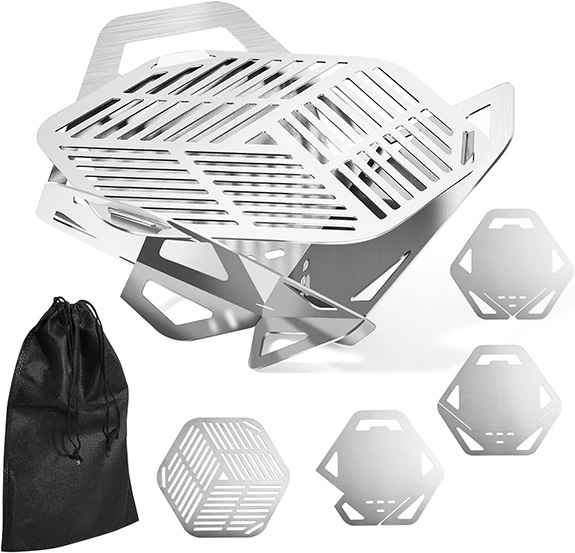
Alinkey Portable Charcoal Grill
From $10
This mini charcoal grill is super easy to assemble and disassemble with no screws needed.
This BBQ grill features a unique triangular stabilization structure with a grill pan attached that can be installed and removed in seconds.
Stay Hydrated and Opt for Local Beverages
Hydration is key to staying healthy on the road. Invest in a reusable water bottle and fill it up whenever you have the chance. Additionally, explore local beverages instead of relying on packaged drinks. Not only does this support local businesses, but it also provides you with a taste of the region's culture and a much healthier option.
When in Italy, don't by any bottled water. Bring a water bottle with you and fill it wherever you see an aqueduct fountain (as I call them). They are all througout Italy and provide the best water you can ask for.
Although Brazil doesn't have the infamous aqueducts, they rely on bottled water for the most part- and it's "with or without gas". Not being a fan of sparkling water, I ask for my water "Sem gas", or "no gas." But whenever possible, I go for the young green coconut for hydration. It doesn't get any better that a young green coconut!
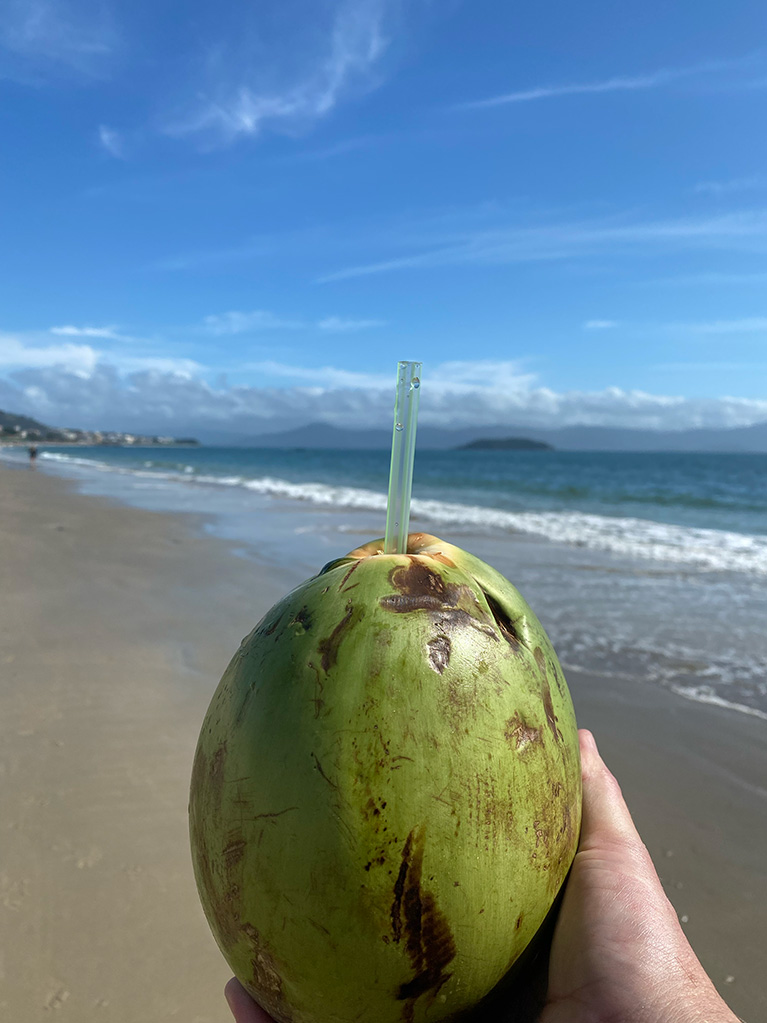
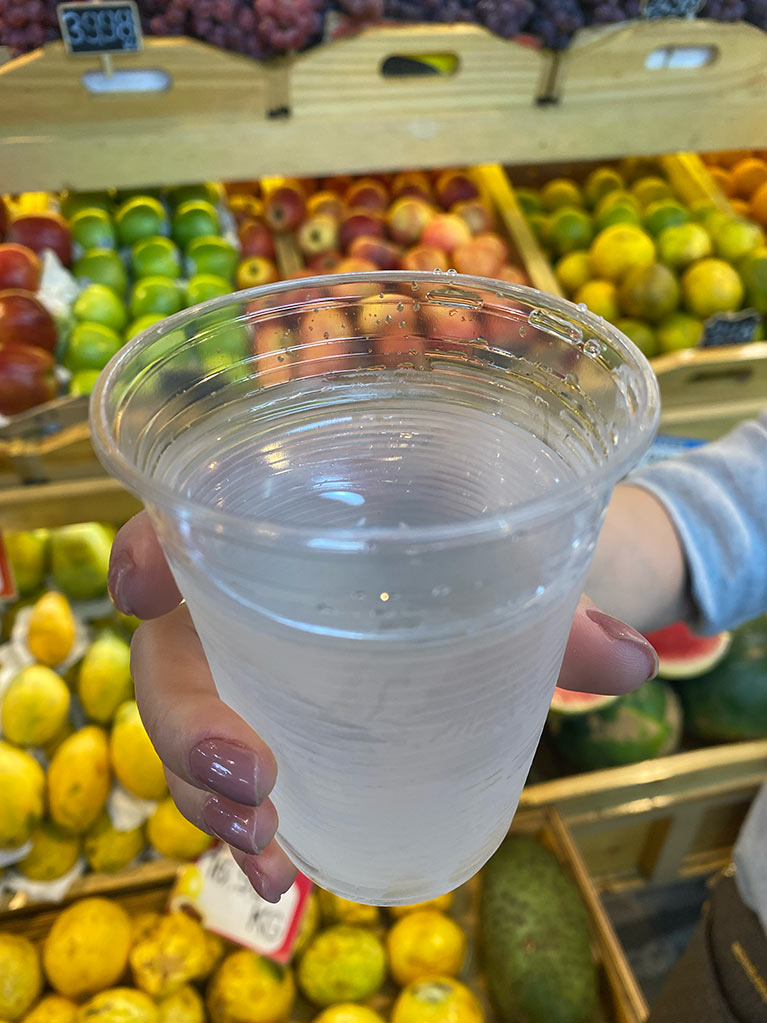
Embrace Community Kitchens and Hostels
Many nomads find themselves staying in hostels or accommodations with communal kitchens. Take advantage of these shared spaces to cook larger meals, collaborate with fellow travelers, and share ingredients. This not only fosters a sense of community but also allows you to split costs and resources.
Cooking healthy meals as a traveling nomad is an art that requires creativity, adaptability, and a willingness to explore local flavors
By planning ahead, budgeting wisely, and embracing the culinary opportunities each destination offers, you can savor the richness of your nomadic lifestyle without compromising on nutrition or breaking the bank. So, pack your bags, your minimal untensils, and get on the road!
